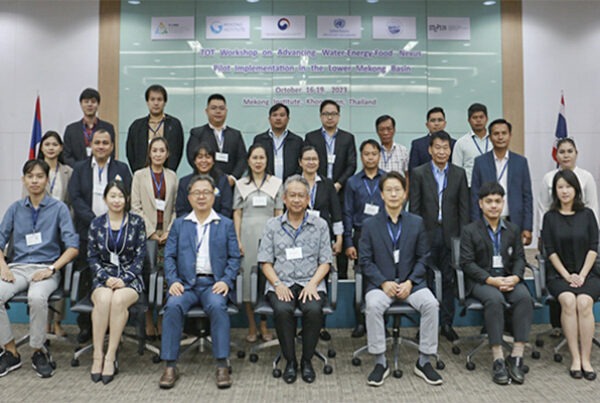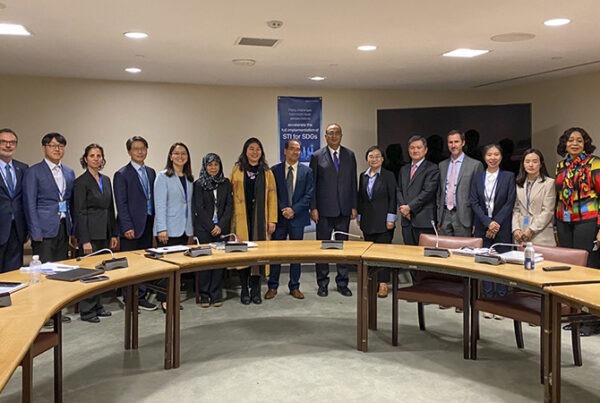The United Nations Office for South-South Cooperation (UNOSSC), the Republic of Korea Ministry of Science and ICT (MSIT), and the Mekong River Commission (MRC) launched the collaboration project, “Triangular Cooperation on Sustainable Development in the Lower Mekong Basin based on the Water-Energy-Food (WEF) Nexus”, in September 2021. The project, also known the “RoK-UNOSSC Facility Phase 3”, aims to strengthen access to water, food and energy for vulnerable communities living in the Lower Mekong Basin (Cambodia, Lao PDR, Thailand, and Viet Nam) through strengthening development approaches and management in these sectors. It will take integrative and multi-sectoral approaches in the application of highly demanded technologies on water, energy and food to improve the livelihoods of the people based on South-South and triangular cooperation (SS & TrC) modalities.

RoK-UNOSSC Facility Phase 3: Triangular Cooperation Project on Sustainable Development in the Lower Mekong Basin based on the Water-Energy-Food Nexus
Project Scope and Focus

The 5-year project is supported by the Ministry of Science and ICT of the Republic of Korea, and the UNOSSC leads the project implementation in partnership with other institutions including the Mekong River Commission Secretariat (MRCS), Mekong Institute (MI) and the Science and Technology Policy Institute (STEPI) of Korea and will enlist the help of other UN Agencies.

Development Context/Background
The Mekong River is the longest river in Southeast Asia, it runs approximately 4,900 km from the Tibetan Plateau in China to the South China Sea in southern Viet Nam. The Mekong region consists of Cambodia, Lao PDR, Myanmar, Viet Nam, Thailand and some Chinese Provinces, namely Yunnan and Guangxi Zhuang Autonomous Region. Geographically, the region is divided into Upper Mekong Basin (Myanmar and China) and Lower Mekong Basin (Cambodia, Lao PDR, Thailand and Viet Nam). Approximately 72 million people live and derive their livelihoods in the Mekong basin area.
The Mekong basin, “a basin of one of the world’s greatest rivers” is facing unprecedented challenges including loss of wetlands, reduced sediments nourishment, and rising salinity that is increasingly impeding rice cultivation. These adverse impacts have been coupled with the COVID-19 pandemic, natural disasters, climate change and human activities that are creating hardship for millions of vulnerable fishing and farming families.
Project Approach, Outcomes & Outputs


Results Framework
The RoK-UNOSSC Facility (Phase 3)’s outcomes and outputs are partly derived from the Basin Development Strategy (BDS) 2021-2030 of the Mekong River Commission. The project puts the vulnerable communities living in the LMB at the centre of the initiative through strengthening their access to water, food and energy, increasing livelihoods and employment opportunities in the context of the triangular and South-South cooperation development modalities. The implementation phase of the pilots will introduce apprpriate technologies in partnership with the private sector and academia.

Overall Project Implementation Structure

Contribution/Adherence to other Development Frameworks
Featured Documents and Knowledge Products
Latest News

P-LINK Incorporates Lessons Learned from Similar Initiatives Related to the Water-Energy-Food Nexus







